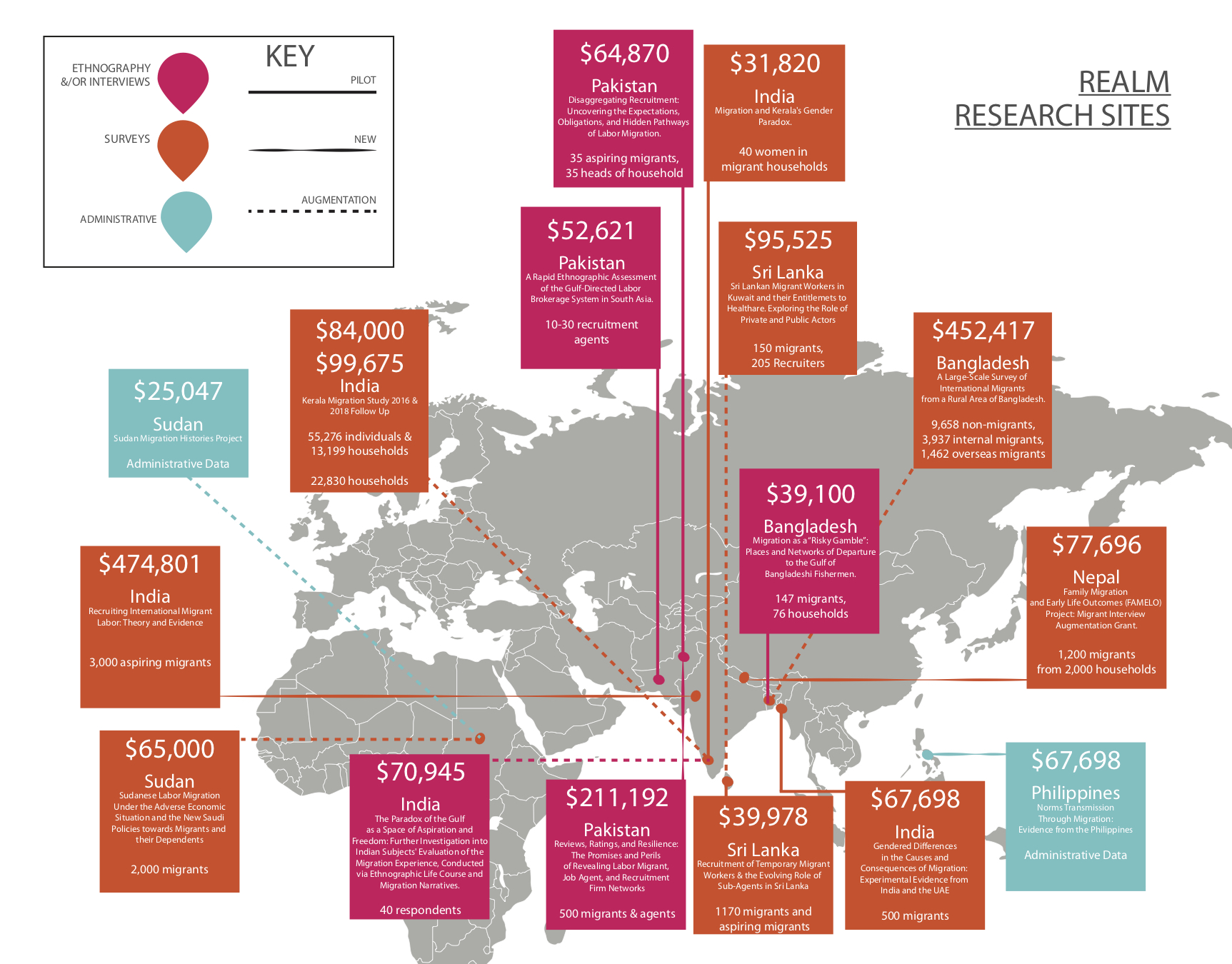About
The REALM research program was conceived to address serious gaps in knowledge about temporary labor migration to the Gulf. At the advent of REALM, research on this migration stream was focused on the experiences of migrants in migrant-receiving countries, ignoring complex dynamics in sending countries that mediate the migration process: both the decisions that lead to migration and the long-term impacts thereof. REALM brings systematic focus to this process, interrogating why migrants seek employment in GCC countries, how they do so, and what this means for the families they leave behind. It aims to build robust studies and innovative data structures to capture rich data on migration pathways and impacts across contexts and over time. In particular, we look to innovative ways to build data structures that can provide the foundation for robust, substantive and empirically grounded insights.
We generated the focal questions within REALM by drafting a “white paper” that set out the state of knowledge with respect to temporary labor migration to the GCC, as well as convening three international workshops bringing together experts on migration to the GCC. The issues raised at these workshops were challenges common to migration research: opacity around the events that lead to migration; the challenge of studying people in multiple locations; the lack of comparability between datasets from different national contexts. The volume and diversity of migration to the GCC adds yet another layer of complexity. These conversations pointed clearly to the value of a project that focuses on migrant sending countries—one that addresses the lack of data and challenges of comparability directly through design.
REALM operates through a PO1 model that promotes collaboration between a series of substantively interlinked projects. This PO1 structure enables research and data gathering across a wide range of issues and levels of analysis, ranging from macro-level studies of out-migration rates to micro-interactional studies of the interpersonal expectations and obligations that accrue over the process of recruitment. The projects contribute to a lasting database and research core for future researchers and policymakers to draw on, and to build the foundation for the policy interventions that will promote fairer labor migration recruitment and better outcomes for individuals and their communities.
Though REALM funding has come to a close, we welcome further collaboration with and between REALM PIs, as well as researchers interested in either contributing to or making use of the REALM data core. Please direct inquiries about REALM research to the e-mail listed below.
Project Leadership
Peter Bearman, Principal Investigator
Charlotte Wang, Project Manager
Esraa Bani, Coordinator, NYU Abu Dhabi
Contact
Funding
New York University Abu Dhabi
Publications
Percot, Marie. 2018. “Bangladeshi Fishermen in Oman: Migration as a Gamble.” Asianization of Migrant Workers in Gulf Countrie. S.I. Rajan & G.Z. Oomeen eds, Springer.
Percot, Marie. 2018. “From Environmental Disaster to Migratory Disaster: The Omani Network of Bangladeshi Fishermen.” Indian Migration Report 2018. S.I. Rajan ed., Routledge India.
Rajan, Irudaya. 2018. “The Future of Population and Migration in the Gulf.” Indians in the Gulf: The Kerala Experience. University of Cambrdige.
Weeraratne, Bilesha. 2018. “Regulating Sub Agents for Better Migration from Sri Lanka.” Labour Economic Series No. 21. Institute of Policy Studies of Sri Lanka.












